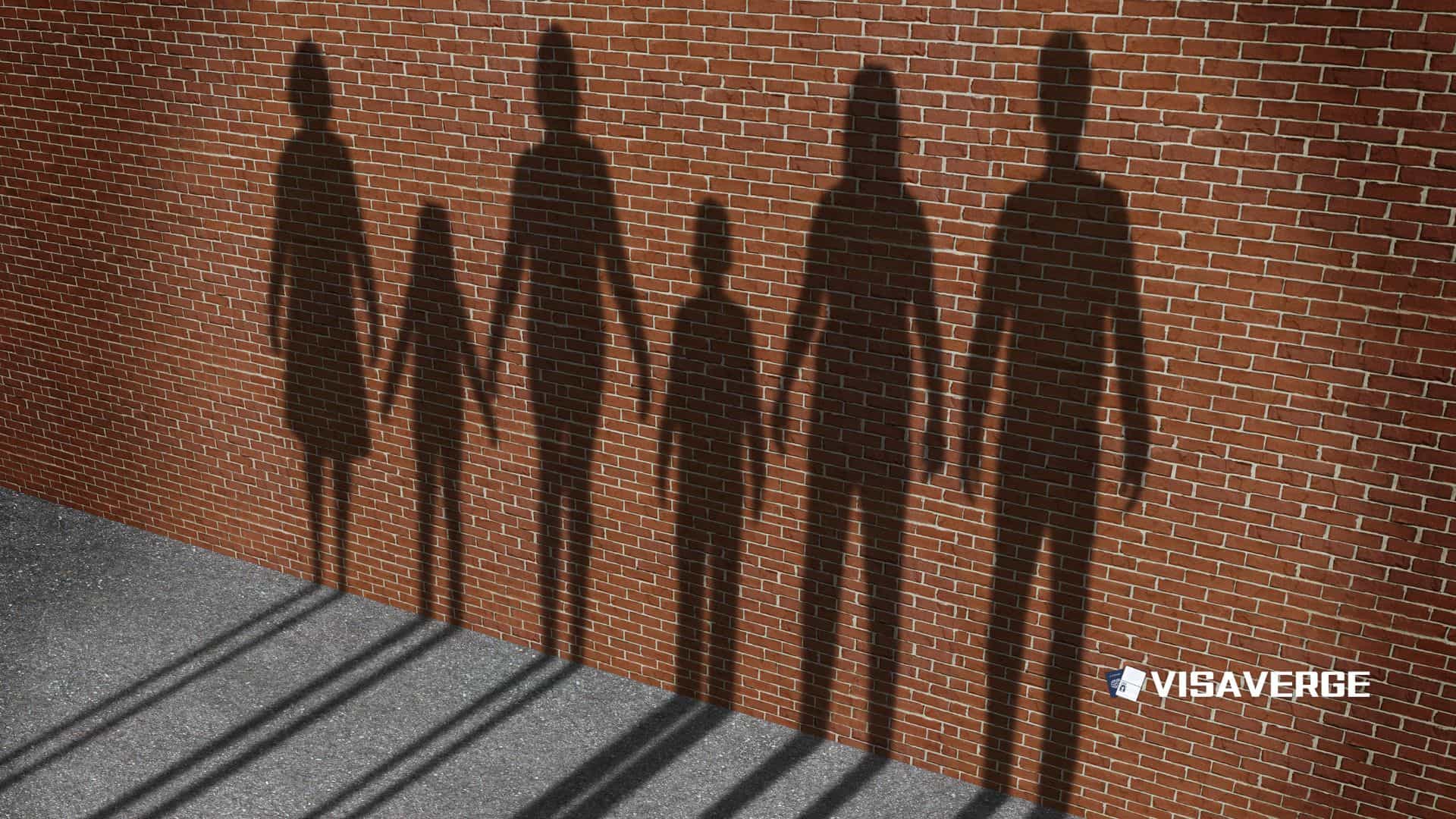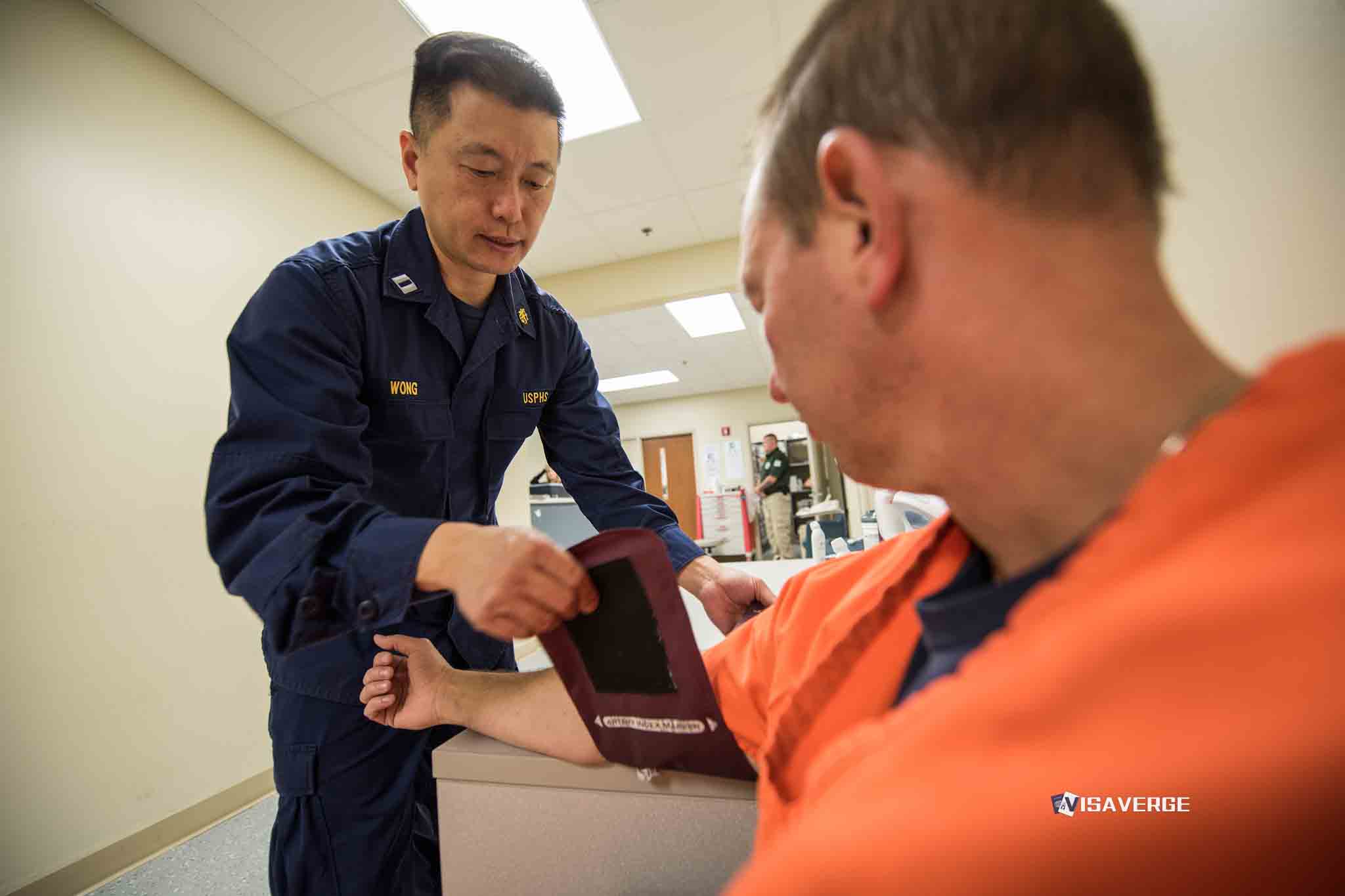Key Takeaways
• Governor Youngkin’s Executive Order 47 deputizes Virginia State Police as ICE agents to enforce immigration laws.
• Virginia’s ALPR surveillance network is expanded, capturing and sharing vehicle data with ICE for enforcement.
• Immigrant communities face increased raids and fear due to expanded surveillance and ICE cooperation in 2025.
Federal Immigration Enforcement Ramps Up in Virginia: How the State’s Surveillance Network Became a Key Tool
As of July 2025, Virginia has become a central focus in the debate over immigration enforcement in the United States 🇺🇸. A series of recent actions by state officials, especially Governor Glenn Youngkin, have turned Virginia’s surveillance network into a powerful tool for Immigration and Customs Enforcement (ICE). This shift has sparked concern among immigrant communities, civil rights groups, and some local law enforcement agencies, raising questions about privacy, civil liberties, and the future of immigration enforcement in the state.

What’s Happening in Virginia?
Who: Governor Glenn Youngkin, Virginia State Police, ICE, immigrant communities, civil rights groups, and local law enforcement
What: Expansion of surveillance and cooperation with federal immigration enforcement
When: Major changes began in early 2025, with ongoing developments
Where: Across the Commonwealth of Virginia
Why: To increase enforcement of immigration laws and support federal efforts
How: By expanding surveillance technology, sharing data, and deputizing state police as ICE agents
The Heart of the Issue: Surveillance and Immigration Enforcement
Virginia’s surveillance network, especially its use of automatic license plate readers (ALPRs), has been around for years. These devices record the license plates of vehicles as they pass by, creating a database of vehicle movements. While originally used for general law enforcement, the network’s role has grown dramatically in 2025 due to new state policies.
Executive Order 47: A Turning Point
In early 2025, Governor Glenn Youngkin signed Executive Order 47, which directed all Virginia public safety agencies, including the Virginia State Police, to work closely with ICE. The order told these agencies to use “all available methods” to help enforce immigration laws. This move effectively made Virginia State Police act as ICE agents, giving them new powers and responsibilities in immigration enforcement.
Legislative Push for More Surveillance
At the same time, the Virginia General Assembly debated a bill (HB 2724) that would expand the use of ALPRs on state highways. While lawmakers first voted against a broad expansion, the governor pushed for another vote in April 2025. The goal was to allow more mass surveillance and remove some of the privacy protections that had been in place.
How the Surveillance Network Works
Here’s a step-by-step look at how Virginia’s surveillance network now supports immigration enforcement:
- Data Collection: ALPRs on highways and other locations scan and record license plates around the clock.
- Data Retention: The length of time this data is kept is a hot topic. Some lawmakers wanted to limit it to 21 days, but the governor wants fewer restrictions, meaning data could be stored longer.
- Data Sharing: The information collected is shared with the Virginia State Police and can also be sent to ICE.
- Law Enforcement Action: With this data, police—now acting as ICE agents—can find and detain people suspected of immigration violations.
- Detention and Prosecution: Those identified may be held by state or federal authorities. The Virginia Department of Corrections and local jails are directed to cooperate with ICE, making it easier to detain and process individuals.
- Community Impact: The result is more raids, arrests, and a growing sense of fear among immigrant communities.
Who Is Affected?
Immigrant Communities
The biggest impact is on immigrant communities in Virginia. Since these changes, ICE has increased its presence, conducting more raids and arrests. People without criminal records, as well as those involved in peaceful protests, have been targeted. This has led to widespread fear, with many community members worried about being detained or deported simply for being in the wrong place at the wrong time.
Civil Rights and Advocacy Groups
Groups like Justice Forward Virginia have spoken out against the expansion of surveillance and closer cooperation with ICE. They argue that these policies threaten privacy, due process, and basic civil rights. According to analysis by VisaVerge.com, these organizations warn that the new approach could lead to racial profiling and discourage people from participating in their communities or reporting crimes.
Local Law Enforcement
Not all local law enforcement agencies are on board. While the governor’s order tells state agencies to cooperate with ICE, federal law says local jails can choose whether or not to help. Some localities in Virginia have shown reluctance, worried about the impact on community trust and the risk of lawsuits.
Virginia Department of Corrections
The Department of Corrections has been quick to follow the governor’s orders. As of early 2025, about 946 people in Virginia’s state prisons are identified as undocumented immigrants involved in serious crimes, out of a total prison population of around 22,000. The department is working closely with ICE to process these individuals, but the focus on cooperation has raised questions about fairness and the treatment of those with minor or no criminal records.
Why Is This Happening Now?
The push for more surveillance and closer cooperation with ICE is part of a broader national debate about immigration enforcement. Supporters argue that these steps are needed to uphold the law and protect public safety. They say that using technology like ALPRs helps law enforcement find people who may be in the country illegally and involved in criminal activity.
Opponents, however, see things differently. They believe that mass surveillance and aggressive enforcement hurt innocent people, especially those who have lived in Virginia for years, work hard, and contribute to their communities. They also worry about the loss of privacy and the risk of mistakes or abuse.
Key Stakeholders: Who Stands Where?
| Stakeholder | Position/Role | Recent Actions/Statements |
|---|---|---|
| Governor Glenn Youngkin | Strong supporter of expanded ICE cooperation and surveillance | Issued Executive Order 47, pushed for more mass surveillance |
| Virginia State Police | Now acting as ICE agents, implementing expanded surveillance | Carrying out the governor’s directives |
| Virginia Department of Corrections | Cooperating with ICE on detainees identified as undocumented immigrants | Quickly following new policies |
| Justice Forward Virginia | Opposes surveillance expansion and ICE cooperation | Sent letters to lawmakers, urging them to protect privacy and civil rights |
| Local Law Enforcement Agencies | Mixed responses; some cooperate with ICE, others are hesitant | Some local jails refuse to sign cooperation agreements |
| Immigrant Communities & Advocates | Concerned about civil rights, privacy, and safety | Reporting more ICE raids and calling for transparency and protections |
The Debate Over Data Retention and Privacy
One of the most controversial issues is how long the state can keep the data collected by ALPRs. Some lawmakers wanted to limit this to 21 days, arguing that longer retention threatens privacy and could lead to abuse. Governor Youngkin, however, has pushed to remove these limits, saying that longer retention helps law enforcement do their jobs.
Civil rights groups warn that keeping data for longer periods increases the risk that innocent people will be caught up in investigations or wrongly targeted. They also point out that once data is shared with ICE, it can be hard to know how it will be used or who will have access to it.
Real-Life Effects: Stories from the Community
Since the new policies took effect, many people in Virginia’s immigrant communities say they feel less safe. Some have stopped driving, even for essential trips, out of fear that their license plates will be scanned and shared with ICE. Others are afraid to attend protests or speak out about issues that matter to them.
Community leaders report that trust in law enforcement is dropping. People worry that calling the police—even to report a crime—could put them or their loved ones at risk of detention or deportation. This “chilling effect” makes it harder for police to do their jobs and can leave entire neighborhoods feeling isolated.
Legal and Civil Rights Concerns
Advocacy groups like Justice Forward Virginia and the Legal Aid Justice Center have raised serious legal questions about the expansion of surveillance and ICE cooperation. They argue that these policies may violate privacy rights protected by the Constitution and could lead to racial profiling.
Some legal experts warn that detaining people without criminal records or targeting protesters could open the state to lawsuits. They also say that the lack of clear rules about how data is collected, stored, and shared makes it hard to hold officials accountable if mistakes are made.
What’s Next? The Road Ahead for Virginia
The future of Virginia’s surveillance network and its role in immigration enforcement depends on several key factors:
- Upcoming Legislative Votes: The Virginia General Assembly is expected to vote soon on whether to expand mass surveillance and remove existing protections. The outcome will shape how much data can be collected, how long it’s kept, and how it’s shared with ICE.
- Civil Rights Advocacy: Groups opposing the changes are working to influence lawmakers and public opinion. Their efforts could lead to new protections or limits on surveillance.
- Federal-State Collaboration: If the state continues to deepen its partnership with ICE, Virginia could become a model for other states—or a cautionary tale, depending on your point of view.
- Local Autonomy: Some local jails and police departments may continue to resist full cooperation with ICE, leading to different levels of enforcement across the state.
What Should Immigrants and Advocates Do Now?
If you live in Virginia and are concerned about these changes, here are some practical steps to consider:
- Stay Informed: Follow updates from trusted sources, including the Virginia Governor’s Office and local advocacy groups.
- Know Your Rights: Learn about your rights during police stops and ICE encounters. Many organizations offer free resources and legal help.
- Connect with Community Groups: Groups like Justice Forward Virginia and the Legal Aid Justice Center can provide support and information.
- Speak Up: If you feel safe doing so, contact your local lawmakers to share your views on surveillance and immigration enforcement.
Official Resources for More Information
- Virginia Governor’s Office: For executive orders and policy updates
- Virginia State Police: For information on surveillance programs
- Virginia Department of Corrections: For data on incarcerated populations and ICE cooperation
- Justice Forward Virginia: Advocacy and civil rights information
- Legal Aid Justice Center: Legal help and policy analysis
Conclusion: A State at the Center of the Immigration Debate
Virginia’s growing surveillance network and its close cooperation with Immigration and Customs Enforcement have made it a key battleground in the national debate over immigration policy. Supporters say these steps are needed for public safety and law enforcement. Critics warn of lost privacy, civil rights abuses, and a climate of fear for immigrants.
As reported by VisaVerge.com, the outcome of upcoming legislative votes and the actions of advocacy groups will play a big role in shaping the future. For now, Virginia stands as a powerful example of how technology, law, and politics can come together to change the lives of thousands of people—and why it’s so important for everyone to stay informed and involved.
For the latest official updates and to read the full text of Executive Order 47, visit the Virginia Governor’s Office.
Learn Today
Executive Order 47 → A 2025 directive making Virginia State Police cooperate fully with ICE in immigration enforcement.
ICE → U.S. government agency enforcing immigration laws and overseeing detention and removal of unauthorized immigrants.
ALPR → Automatic License Plate Reader technology capturing vehicle license plates for law enforcement tracking and surveillance.
Data Retention → The period collected surveillance data is stored and accessible to authorities for enforcement purposes.
Virginia State Police → State police force authorized to carry out law enforcement and now immigration enforcement duties under EO 47.
This Article in a Nutshell
Virginia’s enhanced surveillance network aids ICE following Executive Order 47. License plate readers enable data sharing and enforcement, sparking immigrant fears. Advocates warn of privacy losses and civil rights risks amid growing debates on surveillance expansion and data retention policies in 2025’s immigration enforcement shift.
— By VisaVerge.com








